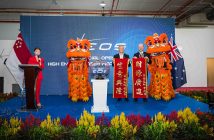By David Harding
 Since its inception, al-Qaida has proven to be a resilient and difficult to defeat organisation and ideology. Here David Harding reviews al-Qaida as a group, its focus and potential future. Harding shows that although al-Qaida has had numerous setbacks, it still retains its intended focus and direction.
Since its inception, al-Qaida has proven to be a resilient and difficult to defeat organisation and ideology. Here David Harding reviews al-Qaida as a group, its focus and potential future. Harding shows that although al-Qaida has had numerous setbacks, it still retains its intended focus and direction.
To determine the current status of al-Qaida, it is appropriate to first identify the five conceptual theatres of operations that al-Qaida is currently conducting operations in. The term conceptual is used, as al-Qaida is not only an organisation composed of fighters, but also a network of individuals, and an ideology. Al-Qaida’s five conceptual theatres of operations are composed of the core group of operatives; al Qaida’s affiliated group, allied groups, networks of individuals, and inspired individuals.
Al-Qaida central
Al-Qaida central is based within the border region of Afghanistan and Pakistan. The group consists primarily of senior operatives providing a leadership and operational support to al-Qaida operations. This group is responsible for special tasks including tactical attacks, media representation, financial control, strategic direction and guidance to al-Qaida affiliates and allies. Since the death of Osama bin Laden, the role as Amir within this group has been moved to Ayman al Zawahiri.
Al-Qaida Affiliates
Al-Qaida affiliates are those groups that carry the name al-Qaida. Examples are al-Qaida in Iraq (AQI), al-Qaida in Arabian Peninsula (AQAP), which is based Yemen, al-Qaida in the Islamic Maghreb (AQIM) based in Algeria, and al Shabaab which is based in Somalia. These groups have formal lines of communication and financial flow to and from al-Qaida central, which also has a level of authoritative control over these groups. The leaders of these groups have sworn allegiance to al Qaida leaders in Pakistan.
Al-Qaida Allies
Allies of al-Qaida are those terrorist or insurgent groups that share a similar ideology, but do not have an allegiance to Zawahiri or al-Qaida. In some cases where interests converge, such groups will share, and at times combine resources for operational needs. For example, in the attack on the US Embassy in Libya in September 2012, two allied groups the Muhammad Jamal network from Egypt and Ansar al Sharia from Libya assisted AQIM in the attack. In general these allied groups keep their area of operations within their country of origin, but are linked to al-Qaida through personal contacts between operatives and not necessarily through al-Qaida itself.
Al-Qaida Networks
Al-Qaida has been able to enhance and diversify its operational portfolio by developing a network of core operatives within Western countries. These operatives utilise their own personal network of amateur Jihadists to assist with operational and tactical endeavours. Such groups include the 7 July 2005 London bombers, where Siddeque Khan was the trained operative who recruited other salafits, and Australian Jack Roche who was sent by al-Qaeda, through Jemaah Islamiah, to plan and prepare operations against the Israeli Embassy in Australia. In addition, and of growing concern to Western Governments in general, and Australia and some European countries in particular, is the growing number of individuals that travel from these countries to the present civil war in Syria. Read More




